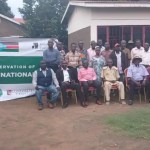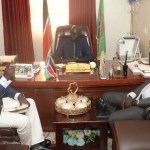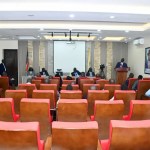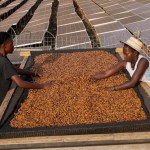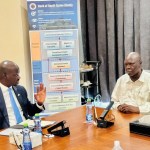(Juba) – The East African Legislative Assembly (EALA) has called on Kenyan President William Ruto to urgently convene a special Heads of State Summit to address a growing financial crisis at the East African Community (EAC) Secretariat. The situation has paralysed operations and placed the future of regional integration at serious risk, with South Sudan among the member states facing scrutiny over unpaid budget contributions.
Following a virtual session to present the EAC’s 2025/2026 draft budget, EALA members expressed frustration at the chronic underfunding. Lawmakers warned that if the current financial strain continues, the bloc’s future could be compromised. They proposed structural reforms to enforce financial discipline and ensure the survival of key EAC functions.
Uganda’s Deputy Prime Minister and Minister for EAC Affairs, Rebecca Kadaga, said that delays in remittances from partner states were directly hindering critical activities. She confirmed that several proposals, including enforcement mechanisms to ensure member states meet their financial obligations, had been presented to the Heads of State. Kadaga also urged the EAC to consider alternative revenue sources instead of relying solely on equal contributions, especially from countries facing fiscal hardship.
Zanzibar MP Abdullah Makame backed the call for a summit to reflect on the growing challenges. He said member states should meet face to face to honestly discuss their difficulties and agree on lasting financial solutions, including commitment enforcement.
Tanzanian MP James Millya proposed changing the contribution formula. He suggested that 65 percent of the budget be shared equally among member states, with the remaining 35 percent based on each country’s financial strength. MP Anjella Kizigha supported introducing penalties for states that consistently fail to meet their dues. She referenced the African Union’s model, where voting rights are suspended for members that default for over two years.
The budget for the 2025/2026 financial year is $109 million—down from the $112.9 million approved the previous year. The proposal, presented by Kenya’s EAC Cabinet Secretary Beatrice Askul Moe, focuses on domestic resource mobilisation, regional investment, and peace and stability.
However, funding shortfalls have already impacted the Assembly. EALA had to borrow $660,690 from other EAC institutions just to facilitate the budget debate process. Meanwhile, the EAC Secretariat is facing a staffing crisis, worsened by delays in recruitment and the departure of senior staff. According to Deputy Secretary General Annette Mutaawe Ssemuwemba, four top officers from the Customs and Trade Directorate are leaving by the end of 2025, weakening the bloc’s ability to oversee trade operations.
Over 150 vacancies at the Secretariat remain unfilled after a hiring freeze in 2024. More than 30 senior staff members will exit by year-end when their contracts expire. Ms Ssemuwemba told the EAC Council of Ministers that these staffing gaps were damaging the performance of EAC institutions.
This marks the third financial crisis the EAC is facing in a single financial year due to unpaid contributions. Partner states collectively owe the bloc over $62.4 million for 2024. Each state is required to contribute $7 million annually, which should generate $56 million. However, by March 2025, only $27.1 million (48 percent) had been received, leaving a shortfall of $28.9 million.
Only Kenya, Uganda, and Tanzania have paid their full 2024/2025 dues. Rwanda has paid 75 percent, Somalia 50 percent, Burundi 19 percent, DRC 14 percent, and South Sudan just 7 percent, equivalent to $490,000 (approximately SSP 3.4 billion at the official rate or SSP 3.43 billion on the parallel market).
Due to these gaps, staff salaries have been delayed and several programmes suspended. The EAC regional court is also struggling with a backlog of unresolved cases.
The 2025/2026 budget expects partner states to cover 62 percent of the total ($67.76 million), while development partners are to fund the remaining 38 percent ($41.58 million). Key focus areas include regional peace, security, infrastructure, and advancing the Common Market and Monetary Union protocols. Ms Moe expressed hope that despite external shocks and falling international aid, the region’s economic outlook remains positive, supported by agriculture, services, construction, and sound fiscal policies.
Still, the EAC’s fiscal challenges remain deep rooted. In the outgoing financial year, the bloc’s $112.98 million budget was to be funded 61 percent by partner states ($67.79 million) and 39 percent by development partners ($43.94 million). With South Sudan’s low contribution rate and growing internal economic challenges, its future role in EAC integration is increasingly under the spotlight.










